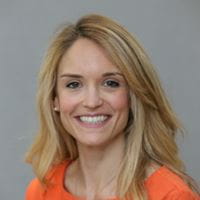Here, medical adviser Dr Emily Shepherd gives her reflections.
 Dr Emily Shepherd qualified in 2010 from St Bartholomew’s and the Royal London School of Medicine where she also received a first class honours in an intercalated BMedSci in Community Health Sciences.
She gained her DRCOG and Part 1 MRCOG whilst training in obstetrics and gynaecology in London. She joined MDDUS in 2016 and completed a Masters in Medical Law and Ethics at King’s College London in 2017.
Dr Emily Shepherd qualified in 2010 from St Bartholomew’s and the Royal London School of Medicine where she also received a first class honours in an intercalated BMedSci in Community Health Sciences.
She gained her DRCOG and Part 1 MRCOG whilst training in obstetrics and gynaecology in London. She joined MDDUS in 2016 and completed a Masters in Medical Law and Ethics at King’s College London in 2017.
What was your inspiration for entering medicine?
Medicine felt like a natural career for me with a surgeon and a midwife for parents. I grew up with weekend ward rounds with my father before going to the latest exhibition at the Natural History Museum and regular family debates over the television programme Casualty. I felt drawn to biology and dissection at school and was always the first to attend any sporting injuries in PE. All I ever wanted to do was help people, make them ‘better’ and sew up wounds.
What most attracted you to obstetrics and gynaecology?
I loved working with women and found pregnant women some of the most motivated and inspirational patients I have met. I could empathise and relate to my patients and the nuances of women’s health. I also thrive in a team, and what better team to have than on labour ward where each and every single person plays a pivotal role in bringing new babies safely into the world. Seeing the impact that medicine can have on doctors made me realise the importance of supporting those providing care to patients. Medicine can be so rewarding but devastating when things go wrong. I would continually see my colleagues left in the dark after stressful cases. Becoming a medico-legal adviser has provided me with the best of both worlds - I can support those who in turn support the patients. Doctors are human and undergoing an investigation into their practice can be one of the most stressful and unsettling times in their career.
What do you consider to be the most rewarding and most challenging aspects of your job?
As a clinical doctor I would have to say that nothing is more rewarding than seeing the face of a new mother and father when you hand their new baby to them, especially when their journey has been slightly treacherous (as it may be when an obstetrician becomes involved). Now, as a medico-legal adviser providing support and assistance to a doctor in crisis is both the most rewarding and challenging aspect of my job. Every day brings new cases, with their own challenges, no case is the same and it is important to be able to adapt accordingly. One morning could be spent in a coroner’s court with a GP describing the support offered to a patient who had ended their life by suicide, and the afternoon could be in a meeting with a member and counsel discussing his General Medical Council investigation.
How do you consider your role has changed over time?
I feel that doctors are under more pressure to provide a service that can sometimes feel unachievable and patients’ expectations are increasingly not being met. It is a very difficult time for doctors and they should feel supported and safe where they work. The value of a support network and a medical defence organisation to guide them through processes cannot be overstated. I notice this in my work as a medico-legal adviser, my ever increasing caseload reflects the increased scrutiny and issues our members face.
On International Women’s Day, what would be your message to other women who are considering a career in medicine?
Firstly, do what you are passionate about. Believe in your abilities and relish the opportunities that present themselves to you. Don’t be afraid to try again, if at first you don’t succeed. Secondly, and most importantly, build a good support network, share your challenges and prioritise your wellbeing. Patients need well doctors, so whether your hobbies are cooking, exercise or playing with your dog, don’t give them up.
This page was correct at the time of publication. Any guidance is intended as general guidance for members only. If you are a member and need specific advice relating to your own circumstances, please contact one of our advisers.
